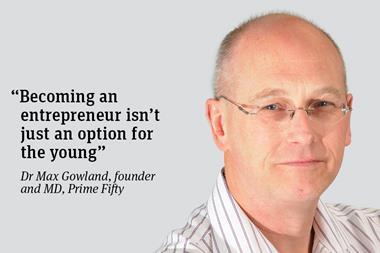
That first conversation with a supermarket buyer is as nerve-wracking as meetings come – and small brands can feel especially exposed.
So how do you make sure you deliver the best possible pitch? The founders of Pip & Nut, Spoon Cereals, Little Moons and Brew Tea Co. share their top tips for food & drink entrepreneurs.
Tip 1: Do your research
“Apart from the obvious – why your product is amazing and the story – know the retailer and tailor your pitch to them,” says Vivien Wong of Little Moons.
Here’s a quick checklist to bear in mind:
- Understand who you’re targeting and where you sit on-shelf relative to everyone else. You can only tailor the pitch by understanding on-shelf pricing and competition. “Store, shelf and product research make up as much of our pitch as our own products do,” says Jonny Shimmin of Spoon Cereals.
- Roughly know what margins the retailer is looking for and incorporate that into your pricing.
- Lay out payment terms, minimum order quantities, customer contribution, stores and SKUs count, so these roll up into one negotiation.
- Understand the available marketing mechanisms (vouchers, introductory discount, banner ads) - work out which suits your product best.
- Understand rebates, over-riders and other sales mechanisms so you’re ready for the conversation. “Be clear about all the commercial terms you need to agree, not just case price,” adds Pip Murray of Pip & Nut.
Tip 2: Ask for help
Aideen Kirby: “Ask for help from as many people as you can. Buyers have hundreds of other suppliers, so a conversation with someone in the industry on tactics can get you further.
Vivien Wong: “We were lucky to have guidance from a fellow foodpreneur. It is useful to talk to others in the industry, which is why a platform like Young Foodies is so helpful.”
Read more: 5 tips for budding food entrepreneurs from people who have made it
Jonny Shimmin: “Understand each retailer’s supply chain systems – they don’t always explain this up-front but investing our own time with supply chain teams was worthwhile.
Pip Murray: “Fmcg mentors/investors are really beneficial when navigating the intricacies of supplying larger retailers.”
Tip 3: Be human and interesting
Jonny Shimmin: “Tell your story! We have more interesting stories to tell than account managers who the buyers see daily.”
Vivien Wong: “Share your delicious product. The buyer got our product immediately and really liked the texture of the mochi.”
Pip Murray: “Set the tone at the start of any new buyer meeting: introduce your story, vision, mission and values. I’m passionate about what we are working towards and I want to bring any buyer into our world.”
Aideen Kirby: “Let your buyer know you’re working hard. We used to send postcards from stores we visited and sampled in.”
Tip 4: Appreciate the work once you’re on the shelf
Aideen Kirby: “A listing is the start of the hard work! Once your product is on the shelf, make sure it sells – meaning a lot of graft along the way.”
Jonny Shimmin: “Plan getting your products off the shelf, not just on it. Rate of sale is important and your activation plan for making it work is key to getting on the shelf in the first place.”
Pip Murray: “Lay out your marketing plans about how you are going to activate both in and out of stores to drive awareness of your brand and rate of sale. Whether this is through sampling in store, PR or point of sale, it’s key that buyers know that you are going to work hard to get products moving off the shelf.”
Tip 5: Final thoughts
Aideen Kirby: “Have agendas for discussions instead of ‘catch-ups’. Send your plan in advance so everyone is prepared and you don’t rely too much on busy buyers after the meeting.”
Vivien Wong: “Getting listed takes time – manage your expectations accordingly. Don’t fret too much.”
Jonny Shimmin: “Be honest about what you can realistically achieve. There is no point in having an amazing product you have slaved over if you cannot be a reliable and consistent supplier going forward. Don’t overpromise.”
Pip Murray: “Pitching to a supermarket is not Dragon’s Den! You do need to know your numbers and tailor a presentation to that specific customer, but it’s not an interrogation
Aideen Kirby: Sell them the future. Small brands are a risk – but we’re more interesting, so that’s in our favour.”
Thea Alexander is founder of Young Foodies, a community for early-stage fmcg brands



















No comments yet